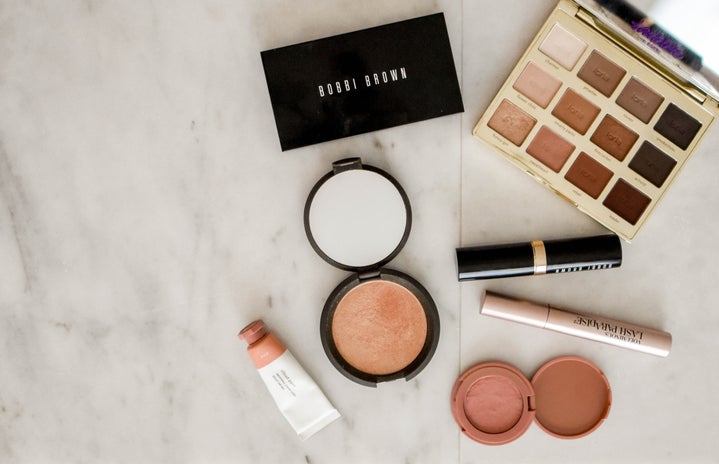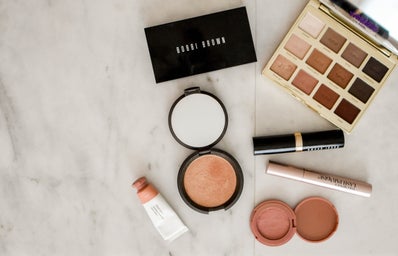You thought you were one of the lucky ones. Here you were having made it through teenager-dom without dreading a fresh breakout; spending an hour before school slathering concealer on; or knowing that the photo your mom chose for the family Christmas card only served as a record of your skin’s resemblance to a pepperoni pizza.
Finally, you turned 20 and made it to the safe zone. I mean, 20-somethings don’t get acne… right? Unfortunately, that can be very false. There are many girls who only start to break-out after already having celebrated their 20 birthdays. “This is definitely a very common and frustrating scenario,” says Dr. Robin Thompson, a dermatologist at Chapel Hill Dermatology. “There are many females that make it through the teenage years fairly clear, only to be besieged by acne in their 20s.”
Starting to break out for what seems like no reason can be an incredibly emotionally painful experience. “All of a sudden I was getting all of these random spots on my face, and it was very embarrassing,” explains Elyssa Goodman, HC Style Editor and a graduate of Carnegie Mellon University. “I thought, isn’t this what happens to teenagers?!? It made me feel small and insecure.”
Taking the time to figure out why it’s happening and then moving on to finding the right solution for you is the best way to eliminate this stressful problem. Hopefully, with these steps, your skin will start to clear up in no time!
Why am I breaking out?
Acne can be brought on by a variety of different causes. But knowing why your skin is breaking out is the first step to solving the problem.
“Acne is caused by a combination of factors including excess sebum (skin oils), adherent follicular skin cells, and bacteria,” explains Dr. Thompson. “P. acnes [Propionibacterium acnes] is a normal skin bacteria that multiplies rapidly in plugged follicles and increases inflammation. The wall of the follicle can then even burst, spreading inflammation into the surrounding skin.”
One other common cause of acne can be hormones, which are abundant in girls in their 20s. Hormones can be especially tricky to handle when they flare during certain times in the menstrual cycle.
“Hormones play a role in acne, from the swings in puberty, to the monthly fluctuations of menstrual cycles, especially in the 20-somethings,” Dr. Thompson notes. “As females get older, the patterns of changes in hormones may change and affect the sebaceous unit, causing acne.”
An increase in stress is another aspect of many 20-somethings’ lives that can cause major breakouts.
“Studies have shown that increased stress can exacerbate acne in women, via increased androgen production by the body in response to stress. These androgens are hormones that stimulate the oil glands,” says Dr. Thompson.
And we’re not talking just about mental stress here. Going to college usually also means a lot more partying and a lot less sleep. This can put a good amount of physical stress on your body and cause your skin to break out much more than it did during your calmer high school years.
Also, if you choose to go far from home for school, a different climate or environment change can set off an unwanted flare of acne.
“Some of the flares may go along as well with decreased hygiene that goes along with the crazy schedule, the partying and the different environment,” Dr. Thompson explains.
A few other factors are genetics, new medications, certain forms of birth control (or the discontinuing of certain birth controls), and some anticonvulsants or steroids.
How can I prevent this?
The next step in your battle against acne is figuring out how to prevent it in the future. If over-the-counter products work for you, they are the easiest way to do this because they don’t require a prescription. You should make sure to apply these products to all acne-prone areas; don’t just spot-treat your acne. Try out products like Neutrogena’s Deep Clean Facial Cleanser or Clearasil’s StayClear Daily Face Wash to clear up that acne quickly!
However, if over-the-counter products don’t seem to be working, there are also several prescription options available. You should get information on both topical and oral prescription treatments if over-the-counter options aren’t controlling your acne, you’re developing painful cystic lesions (deep, inflamed breakouts) or nodules (hard, painful lumps under the skin’s surface), your skin is scarring or you’re experiencing negative emotional effects (embarrassment, mood changes, etc.) because of your acne, according to Dr. Thompson.
Topical prescription treatments will often work for you if your acne is mild, but if you have deeper cystic acne lesions (especially if you’re concerned about scarring), you’ll probably need a oral/topical treatment combo to get the best results.
If you feel that you need prescription medication for your acne, you should go to a dermatologist to discuss your options. Luckily, most prescription products, whether topical or oral, are covered fairly well by insurance, so they won’t break the bank of a typical collegiette. To find a good dermatologist in your area, ask around if you have friends who have lived there for a while or head to student health to get the information you need.
How can I get my skin back to normal?
One important aspect of ensuring you stay acne-free is making sure your skin is as clean as possible.
“It is important to wash your skin twice daily with a gentle cleanser. Avoid toners, astringents, scrubbing particles or vigorous washing, as it may increase irritation and make acne worse,” Dr. Thompson explains. “Use only makeup and products (including hair oils and sunscreens) that say they are ‘non-comedogenic,’ or don’t plug pores.”
It’s also key to avoid exacerbating your acne any further by picking at it, as this will only make the problem worse.
“Don’t squeeze, pop or pick pimples, as it can force the inflammation deeper in the skin and increase inflammation, prolong the healing time, and increase the risk of scarring,” says Dr. Thompson.
If the appearance of your acne is still bothering you or making you self-conscious, you can use concealer or cover-up to camouflage it. Green-tinted makeups work especially well to hide redness. Neutrogena Skin Clearing Oil-Free Concealer in correcting green works great to hide any embarrassing red spots!
By taking these steps, you can solve your 20-something acne problem as quickly and painlessly as possible, and be back to your fabulously clear-skinned self in no time!

